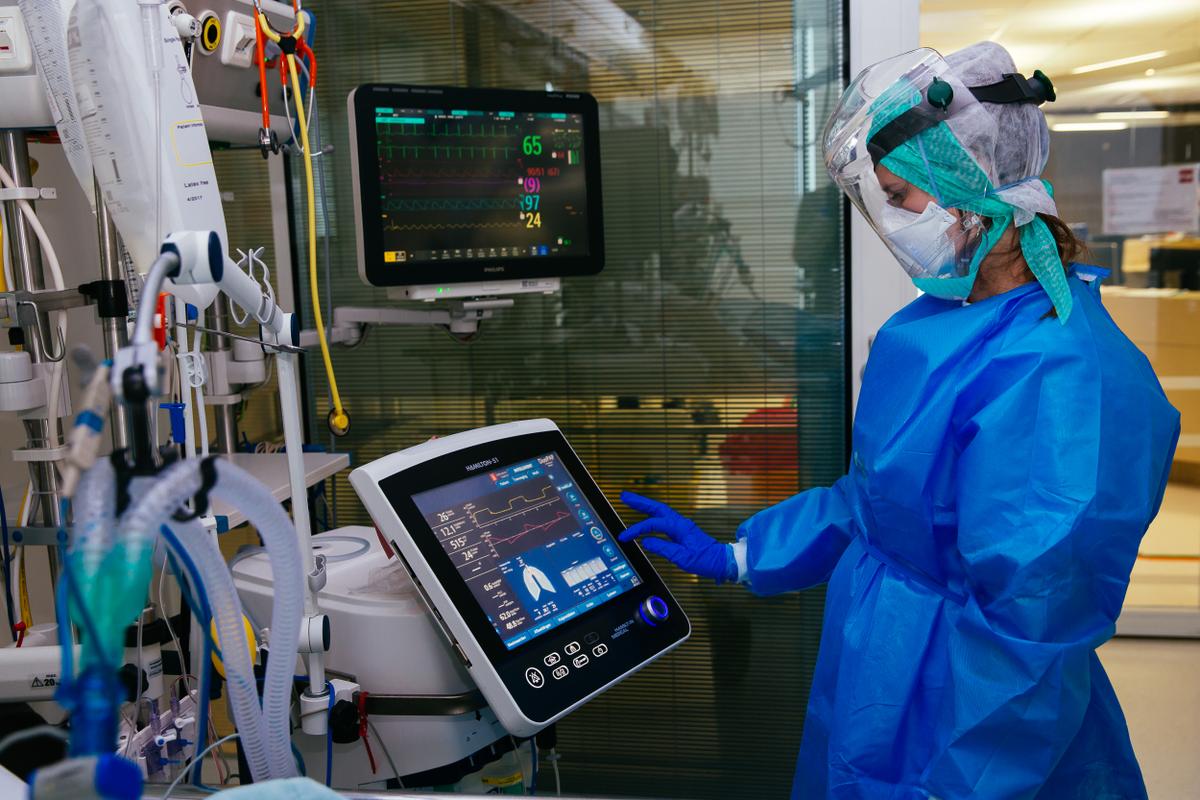Researchers are working all over the world to reduce the impact of the coronavirus. Researchers and physicians at KU Leuven and UZ Leuven are in constant dialogue with international researchers to share their years of expertise. In the lab, it is a race against time to come up with a vaccine against the coronavirus and to test existing or new drugs that can be used in sick patients.
Thanks to the close interaction between basic researchers at KU Leuven and clinicians at UZ Leuven, new insights from the lab can be tested on patients in a very short period of time in order to investigate treatments. Funding for these studies, in which the VIB also participates, is provided on the basis of UZ Leuven's own research resources, KU Leuven and patronage money from a recently established corona fund. After the usual approval by the ethics committee and the informed consent of the patient, the physicians on the COVID-19 department get down to work to translate the insights gained in the basic research into new treatments for the patient in the hospital.
In the meantime, a number of clinical studies have been started in UZ Leuven on patients of the COVID-19 departments. Due to the large number of patients, the studies can provide essential insights for coronary patients worldwide. The battle is being fought on several fronts: antiviral drugs fight the virus itself, while other drugs control the immune system and the exaggerated immune response of infected patients. Both strategies complement each other and, according to the researchers, can save lives.
Antivirals in non-intensive patients
Researchers from the Leuven Rega-institute led by Professor Johan Neyts identified several molecules in the laboratory that inhibit the COVID-19 virus. Carefully conducted, randomized clinical trials should now determine whether patients who are administered such a drug recover more quickly and end up in intensive care less quickly than patients who did not receive the drug. UZ Leuven conducts the studies in collaboration with other Belgian university and general hospitals. The study was named Dawn (Direct Antivirals Working Against nCoV). Patients and researchers communicate during this study via telephone or screen at the patient's bedside.
It is not because a molecule inhibits the virus in the lab that it is actually effective in humans. That's why there is a great need for quality clinical trials in patients.prof. Johan Neyts, virologist at the KU Leuven
Prof. Johan Neyts, virologist at the KU Leuven: "In the Rega-institute, large numbers of molecules are rapidly screened for their potential efficacy against SARS-CoV-2. Once sufficient in vitro efficacy has been demonstrated, the most promising drugs can be tested in patients. Although we must also remain cautious. It is not because a molecule inhibits the virus in the lab that it is actually effective in humans. That's why there is a great need for quality clinical trials in patients."
Study of the immune system in intensive care patients
Patients in whom the virus strikes more severely may develop severe inflammation and scar tissue on the lungs. This lung damage is clearly visible on a CT scan and is the result of a severe immune reaction of the body. As a natural reaction, the body tries to clean up the viral infection, but that same immune system also causes damage in the lungs and then throughout the body. In this phase, patients often end up in intensive care and, in addition to antiviral drugs, anti-inflammatory drugs must also be used that temporarily dampen the immune system. For this, the correct immune profile of a patient must be known. At the COVID-19 departments of UZ Leuven, a study called CONTAGIOUS has been started in which high-tech equipment can quickly determine the immune profile of patients.
Little by little, we are beginning to understand how the COVID infection progresses, starting from the virus in non-critical patients to corona patients in intensive care.prof. dr. Joost Wauters, intensivist at UZ Leuven
Prof. Dr. Joost Wauters, intensivist at UZ Leuven: "Thousands of scientists around the world are working around the clock to find the weak spots of the virus. Once these weaknesses are known, it is important to investigate in patients whether we can effectively use the weaknesses to improve patient survival. Little by little, we are beginning to understand how the COVID infection progresses, starting from the virus in non-critical patients to corona patients in intensive care. Knowing the correct immune response of critical patients and acting on the body's immune response is essential in the fight against corona".
About the corona fund
To join forces a COVID-19 fund was initiated. Every bit of financial support can give the newly started trials a boost.
This article is part of the Annual report 2020
- First successful lung transplant with lungs of an ex-COVID-19 patient
- Transplant kidney survival rate improves with new method of transportation
- New app guides healthcare workers through oral anti-cancer therapy
